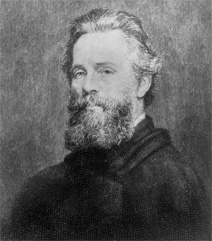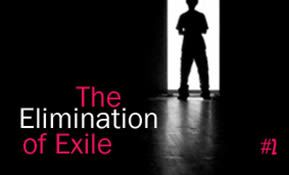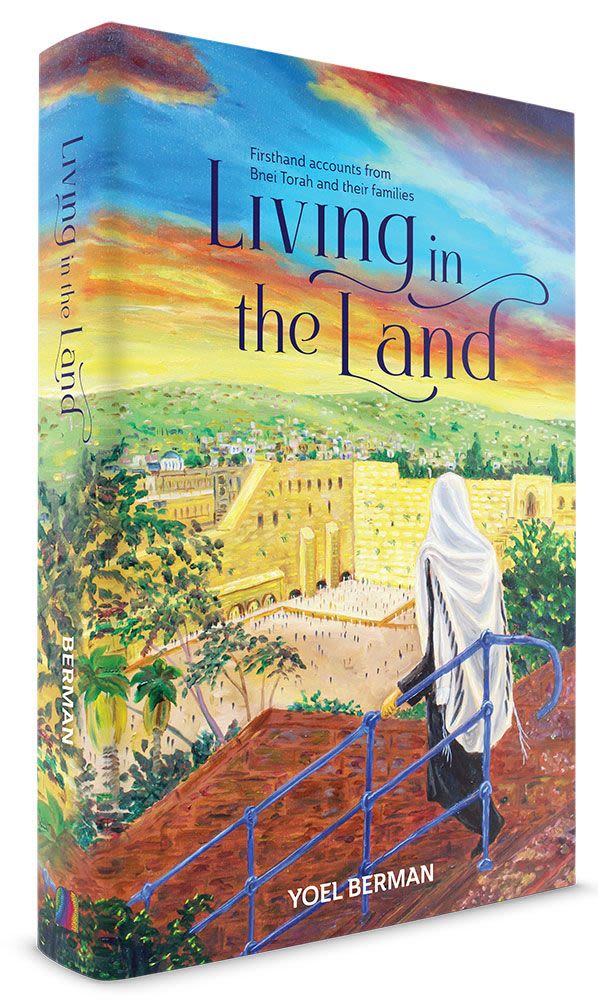
Melville in Jerusalem
Herman Melville, famed author of Moby Dick, made a historical visit to Jerusalem in 1857, leaving us priceless testimony that the notion of a Palestinian people is an utter myth…

A few years after the novel Moby Dick was published, American author Herman Melville was so devastated by its lack of sales and lousy reviews that he decided to cheer himself up with a pilgrimage of sorts to Jerusalem.
But instead of being cheered up, what Melville saw in Eretz Yisrael more than a century and a half ago disheartened him.
 What he saw was the profound sorrow of a forsaken wasteland.
What he saw was the profound sorrow of a forsaken wasteland.
And it’s that wasteland that the world seems to prefer over today’s Israel.
If the United Nations, the anti-Israel protesters on college campuses, terrorist regimes like Iran and all other antisemites (including those in political power) get their way, G-d forbid, the Land of Israel would soon revert back to the rocky bareness Herman Melville observed in 1857.
Here’s why. It’s a spiritual and historical fact that when the Land of Israel is heavily populated with Jews, the Land is fertile, thriving and gloriously productive. But when there’s just a small Jewish presence in Israel, such as the period during Ottoman rule when Melville journeyed to Jerusalem, the Land becomes desolate.
So when today’s pro-Palestinian antisemites want to make the Land of Israel Judenrein, whether they know it or not that also means making the Land itself just as barren as it was when foreign empires ruled it. Instead of inheriting the Jewish vineyards, orchards, forests, fields, farms, cities and technology that flourish today, the terrorists and Jew haters chanting “Palestine from the river to the sea” would inherit what Melville called “the unleavened nakedness of desolation.”
And Melville should know. He recorded the desolation he witnessed in a journal (though he had never intended to publish it). In this journal, he described a bleak mid-nineteenth century landscape of a country eternally promised to the Jews but not yet fully inhabited by Jews. Somber and forlorn, Melville’s journal reveals what Israel, especially Jerusalem, could devolve into without its rightful Jewish residents.
This makes Melville’s journal especially relevant since the entire world is now focused on Jerusalem — and since there are delusional political forces now at work attempting to tear Jerusalem, or at least parts of it, away from the Jews.
So to serve as a reminder of what the Land of Israel looked like when it was the way our enemies now want it — free of Jewish control with just a small remnant of impoverished, defenseless Jews — here are a few excerpts of Melville’s 1857 Jerusalem journal.
Barrenness of Judea
“Whitish mildew pervading whole tracts of landscape — bleached — leprosy — encrustation of curses — old cheese — bones of rocks — crunched, gnawed, mumbled …rubbish of creation…. Saw Jerusalem from distance — unless knew it, could not have recognized it — looked exactly like acrid rocks.
Jerusalem
“Hillside view of Zion — loose stones and gravel as if shot down from carts. The mind cannot but be sadly affected with the indifference of Nature and Man to all that makes the spot sacred….
Stones of Judea
“We read a good deal about stones in Scriptures. Monuments and stumps of the memorials are set up of stones … and no wonder that stones should so largely figure in the Bible. Judea is one accumulation of stones—stony mountains and stony plains; stony torrents and stony roads; stony walls and stony fields, stony houses and stony tombs; stony eyes and stony hearts. Before you and behind you are stones. Stones to the right and stones to the left.
The Hills
“No country will more quickly dissipate romantic expectations than Palestine—particularly Jerusalem. To some the disappointment is heart-sickening, etc. Is the desolation of the land the result of the fatal embrace of the Deity?
The Jews
“The Jews dare not live outside walled towns or villages for fear of the malicious persecution of the Arabs and Turks. Besides, the number of Jews in Palestine is comparatively small. And how are the hosts of them scattered in other lands to be brought here? Only by a miracle.”
And that’s exactly what happened — a miracle.
The miracle of the Jewish exiles gathering in Israel began in Melville’s century. Just seven years after Melville’s Jerusalem visit, there were twice as many Jews than Arabs living in Jerusalem. According to Jewish historian Rabbi Berel Wein, there were 6,000 Jews in the Land of Israel in 1900. That number grew to 60,000 by 1920 and 600,000 in 1948.
From what Melville saw during his Jerusalem journey, he despaired of the Jewish masses ever returning home to Israel. Yet today, there are more than six million Jews living in the Jewish state. For the first time since the First Temple stood, more Jews live in the Land of Israel than anywhere else.
Now that the prophesy of the in-gathering of Jews is being fulfilled, we’re living in a historic time when the entire world is obsessed with Jerusalem and Israel, unintentionally (and sometimes intentionally) threatening to turn Jerusalem back to the wasteland it was during Melville’s visit.
May this never happen.
The challenges we’re currently faced with during this last period of exile before Mashiach, classic Jewish sources reveal, is the result of lack of emuna. Though the Prophets assured us that Israel will be the safest place on Earth right before Mashiach, the ride could still be bumpy. The good news is we can still try to mitigate stern judgments by strengthening our emuna in Hashem and thanking Hashem for all our challenges.
And perhaps then, “Next Year in Jerusalem” will be this year.








Tell us what you think!
Thank you for your comment!
It will be published after approval by the Editor.